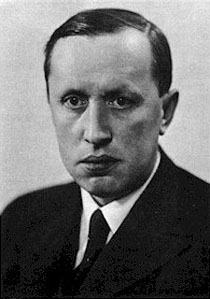A Quote by Samuel Johnson
The dependant who cultivates delicacy in himself very little consults his own tranquillity.
Related Quotes
If Julian had flattered himself that his personal connexion with the capital of the East would be productive of mutual satisfaction to the prince and people, he made a very false estimate of his own character, and of the manners of Antioch. The warmth of the climate disposed the natives to the most intemperate enjoyment of tranquillity and opulence; and the lively licentiousness of the Greeks was blended with the hereditary softness of the Syrians.
Good work is no done by "humble" men. It is one of the first duties of a professor, for example, in any subject, to exaggerate a little both the importance of his subject and his own importance in it. A man who is always asking "Is what I do worth while?" and "Am I the right person to do it?" will always be ineffective himself and a discouragement to others. He must shut his eyes a little and think a little more of his subject and himself than they deserve. This is not too difficult: it is harder not to make his subject and himself ridiculous by shutting his eyes too tightly.
I find that a real gardener is not a man who cultivates flowers; he is a man who cultivates the soil. He is a creature who digs himself into the earth and leaves the sight of what is on it to us gaping good-for-nothings. He lives buried in the ground. He builds his monument in a heap of compost. If he came into the Garden of Eden, he would sniff excitedly and say: "Good Lord, what humus!"
To be honest, to be kind-to earn a little and to spend a little less, to make upon the whole a family happier for his presence, to renounce when that shall be necessary and not be embittered, to keep a few friends but these without capitulation-above all, on the same grim condition to keep friends with himself-here is a task for all that a man has of fortitude and delicacy.
Very few people believe in the devil these days, which suits the devil very well. He is always helping to circulate the news of his own death. The essence of God is existence, and He defines Himself as: 'I am Who am.' The essence of the devil is the lie, and he defines himself as: 'I am who am not.' Satan has very little trouble with those who do not believe in him; they are already on his side.
Because, you see, God - whatever anyone chooses to call God - is one's highest conception of the highest possible. And whoever places his highest conception above his own possibility thinks very little of himself and his life. It's a rare gift, you know, to feel reverence for your own life and to want the best, the greatest, the highest possible, here, now, for your very own. To imagine a heaven and then not to dream of it, but to demand it.
Whoever is wise is apt to suspect and be diffident of himself, and upon that account is willing to "hearken unto counsel"; whereas the foolish man, being in proportion to his folly full of himself, and swallowed up in conceit, will seldom take any counsel but his own, and for that very reason, because it is his own.
King Arthur is profoundly stupid and inept.. then there's Clive Owen, rising above it all. Aloof yet watchful, the actor cultivates an inner stillness that is perfect for faintly ironic brooders. He neither distances himself from this risible material nor pulls out the stops and opens himself to ridicule. His King Arthur tells us little about Arthur, but much about protecting one's flank. The mark of a box-office king?
Life consists of sadness too. And sadness is also beautiful; it has its own depth, its own delicacy, its own deliciousness, its own taste. A man is poorer if he has not known sadness; he is impoverished, very much impoverished. His laughter will be shallow, his laughter will not have depth, because depth comes only through sadness. A man who knows sadness, if he laughs, his laughter will have depth. His laughter will have something of his sadness too, his laughter will be more colorful.



































